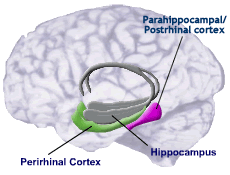 |
| Niklas Hellerstedt (Flickr) |
Why do we get hangry? One lovely fall day a few years ago, my now-husband (I'm not sure why he married me after this) almost left me on the side of the road. We had just left a Penn State football game, and I was H-U-N-G-R-Y.
My resulting behavior was far from what you might consider "ladylike," much less "civilized." I won't even re-type the words that were spoken. Eventually, a pit stop for a burger and fries managed to tame my inner beast.
What causes the sensation of "hanger" – the phenomenon of feeling angry and short-tempered when hungry? Coincidentally, fellow
The Conversation writer and obesity/nutrition researcher
Dr. Amanda Salis recently covered this topic
here. Do check out her article for details, as I'll be mostly summarizing below.
Basically, three major factors are thought to contribute to our bad tempers when we're famished:
 |
| Glucose metabolism. Mikael Häggström (Wikimedia Commons) |
1. When we eat, carbohydrates are broken down into simple sugars, one of which is glucose. Right after a meal, the levels of glucose in our blood are high. Over time, though,
blood-glucose levels drop. Eventually, if these levels fall far enough, your brain will perceive it as life-threatening. Unlike other organs, which have an energy back-up, your brain
relies solely on glucose as a fuel source and requires a continuous supply. In fact, despite accounting for only 2% of your body's mass, your brain is estimated to use up
20-23% of your body's energy intake throughout the day, even at rest. Low blood glucose, obviously, signals, "imminent death! Act now!"
2. To our other organs, low glucose ramps up hormones that act to increase glucose in the body. Among these are epinephrine and cortisol, which are synthesized in the adrenal glands. These are both
stress hormones, released when our body perceives threat, like a lion chasing us or an organic chemistry exam being handed out in class. That's enough to change someone's mood for the worse, right?
3. As it turns out, anger and hunger don't only share many of the same letters, but they're also controlled by similar genes. One of these genes produces a protein called
neuropeptide Y, which not only stimulates eating behavior, but also regulates anger and aggression. Long story short, I probably had pretty high levels of neuropeptide Y after that football game.
What about you?
Do you get hangry, too?
Let us know
In this anonymous poll!

















